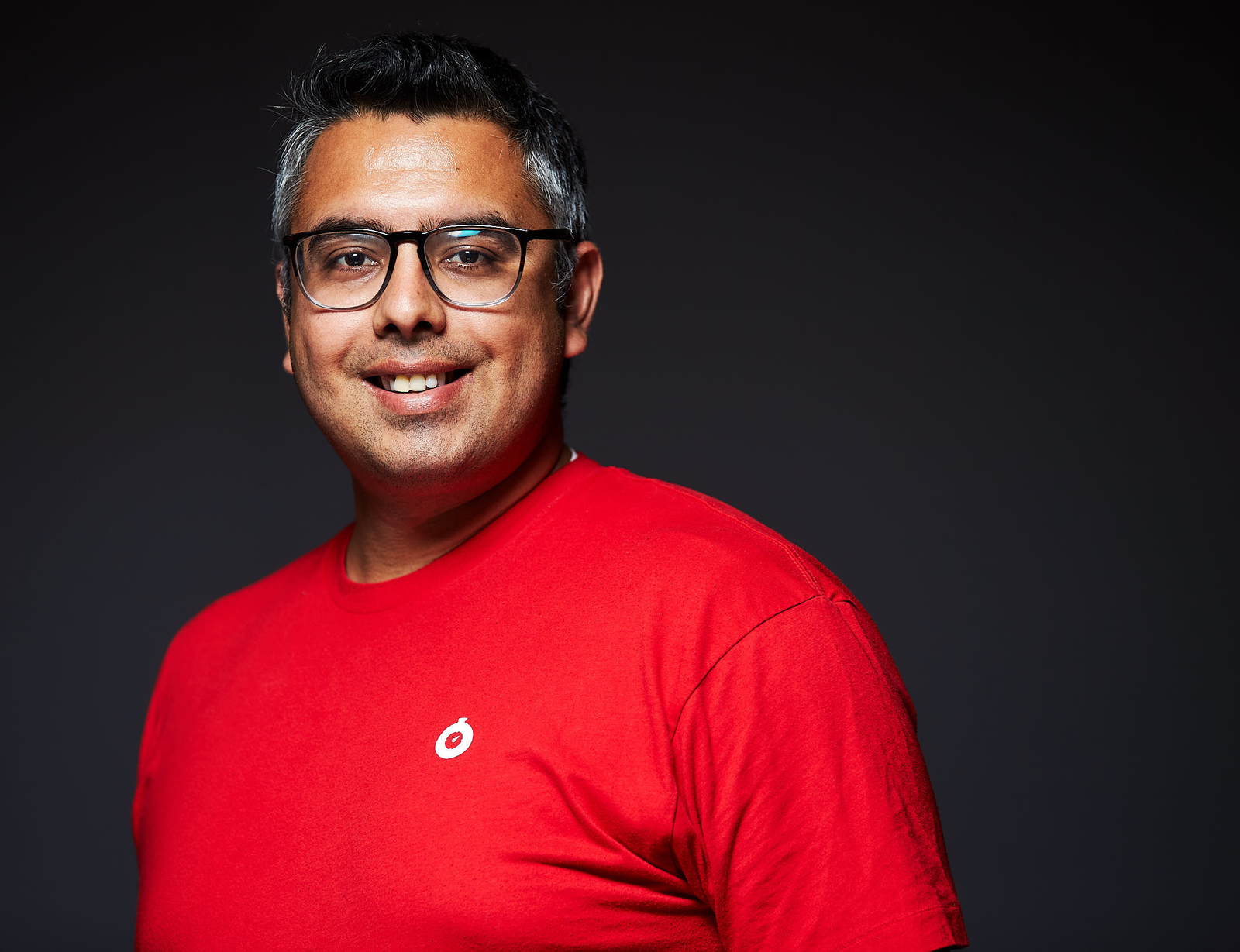In Episode 5, Eddie Kay (@ichthyos) shares his recent experience jobhunting as a manager. If you’ve never jobhunted as a manager, this episode is for you! Eddie shares answers to questions like “how do you schedule interviews on a manager’s schedule?”. Eddie works at Toast in Boston as a Senior Engineering Manager, and has been in engineering management for about a decade.
Transcript
JENNIFER: Welcome to Storytime with Managers, a podcast microseries by Cohere.
Hi, I’m Jennifer Tu, and I’m here with Eddie Kay to talk about switching jobs as a manager. Eddie, can you tell us a little about yourself?
EDDIE: Sure. Hi, I’m Eddie. I am a Senior Engineering Manager at Toast here in Boston. I’ve managed software engineers in some capacity on and off for the last 10 years or so. And I’ve previously worked as a Software Engineer and Site Reliability Engineer at various places.
JENNIFER: Cool. Eddie, before we started recording, you mentioned to me that this was your first time job hunting as a manager. And in all of your previous management positions, you had been promoted to this positions from within the company. I was wondering, what is it like to job hunt as a manager versus job hunting as an engineer? What was different? Or is it all the same?
EDDIE: I definitely found it to be different in that reading job postings from various companies that I was not familiar with, the expectations of an engineering manager vary very widely from company to company. Some companies wanted their engineering managers to be very hands-on and split time between actual coding and people management and organizational leadership. And some wanted their managers to be much more focused on hiring and growth and the more organizational aspects of leadership in people management. Some, it was unclear what those expectations were. So I would submit my information [inaudible] only with a later conversation with a recruiter would I understand that it wasn’t exactly what I was looking for. I wasn’t exactly what they were looking for. So I think much more than my previous job searches as an engineer did I have to really think about what I was looking for in the position and try to match that up with what I was seeing expressed in the actual job postings.
As an engineer, the expectations from company to company were pretty standard. Most companies used, for me, as someone who works primarily in software as a service companies. Most companies are working in the cloud and using a similar tool check-ins, similar languages. And as an engineer, you’re probably expected to work on a team, use version control, do code reviews, and that’s probably the majority of your job.
As an engineering manager, that could vary very widely, depending on the stage of maturity and the amount of growth that the organization has, depending on what role the engineering organization has in the company. Like some companies are more [inaudible] versus product-led. Some companies have a very small engineering organization compared to their overall head count. Some very large.
So I guess my general advice would be to really look at what’s out there and start trying to list characteristics of companies that you’re looking for and what you’re looking for in your career as you make this change.
JENNIFER: Wow. The way you describe that, it makes it sound a lot like all of the worst parts of trying to find a job as an IC. You know what is important to you and you’re out there trying to look. And companies are just saying, “We just want an engineer. An engineer engineer that does exactly what we’re thinking of that we’re not going to tell you.
EDDIE: Right.
JENNIFER: So I’m guessing that you were looking for a position where you weren’t doing a mix of code and management and focusing entirely on the organizational structure. Is that right?
EDDIE: Yes. I was looking to join a company that was experiencing a lot of growth so that I could focus on hiring, on setting up multiple teams for success with a fairly broad scope of leadership and opportunities to grow multiple teams of engineers.
JENNIFER: Yeah. What’s a typical process that you see for looking for a manager position? I know for looking for an engineering position, I would expect to see one or two screenings and then some kind of an onsite ranging from half a day to a day. And for the screenings as an IC, I would expect maybe a technical one, maybe not. And for the onsite, a mix of technical, maybe non-technical. What’s it like on a management side?
EDDIE: Let’s see. Typically, I had one to two conversations with a recruiter in which the recruiter and I ask each other questions about what we’re looking for as the job postings might not have been very precise or maybe in some cases slightly update. Assuming that both of us wanted to proceed, there would be an initial phone screen, usually with the hiring manager. That probably also depends on the organization and the level of leadership, the sort of amount of seniority relative in the organization of the position that you’re looking for. And in that phone screen, it typically was a mix of the person I was talking to [inaudible] the overall need that they are experiencing in the work that they’re doing, as well as doing a pretty short technical in it. So this was usually about an hour with half to two thirds of it being conversation about what their group does and what the motivation for their work is. And a third to half on just, in my experience, it was pretty basic technical to see whether I could code at a basic level.
JENNIFER: So kind of like a fizzbuzz kind of a level or like systems design or reverse linked list kind of a level.
EDDIE: The ones that I saw were pretty basic. I’d say like reverse a linked list kind of level. But again, I think this really varies from place to place. There were some phone screens I had in which they purely focused on asking me to talk about my experience as a manager and what kinds of roles I’d played on teams in the past. And then there were some that asked me to do some basic string manipulation in coder pad or some kind of shared editor like that. I didn’t see anything that was even nearing like fizzbuzz level of complexity, but your mileage may vary depending on just what your hiring team is looking for.
JENNIFER: Did you have to break out any of your algorithms and review that coursework before any interviews?
EDDIE: I did not. But I’ve heard from other people, other engineering managers who did do that kind of preparation for their interviews. Part of the constraints around my search were that I was pretty busy. I was employed full time when I was starting the search. I, at first, was starting to look around but had not made a decision to leave and could have made the decision to just stay at my previous employer. So for me, it was a personal decision, I guess, not to put all that much effort into preparing to review my computer science coursework or prepare specifically for coding centric technical interview. But also, I guess that probably just speaks to my overall comfort in doing technical interviews, because as a system engineering manager, I’ve given many technicals in the past and I’m not particularly anxious when I have to be on the other side of the table.
JENNIFER: All right. That makes sense. One thing you said earlier I’m kind of curious about, but if you don’t want to dive into this on this recorded podcast, let me know.
EDDIE: Sure.
JENNIFER: Scheduling interviews as a candidate when you’re a manager. I’ve only really done that for myself when I’ve been working as an IC. I have a really hard time imagining how to squeeze things in when you’re not on this maker schedule, but you’re on a manager’s schedule. Do you have any advice or tips on that?
EDDIE: Yeah. For me, I guess – we started talking about the overall interview process, right? So I had these brief phone conversations, whether it was with the recruiter or the initial phone screens. Those, I was fairly selective in asking the recruiting teams to schedule for me between like 8:00 and 10:00 a.m. with a strong preference for like 8:00 to 9:00 a.m. And then at the end of the day, 5:00 p.m. or later, with a preference for 6:00 p.m. or later. And that’s just when I could make time for it. As you say, as a manager, my calendar with my day job at the time was quite packed. So I tried to just do it essentially at the start or end of the day outside of what I would normally consider business hours. But that can’t always happen. Not all of us have that kind of flexibility. And depending on the scheduling constraints, I ended up taking an hour or two off here or there for an appointment. And I’d be transparent with my team saying I’m going to be out of the office for this time. And it all worked out, I guess. For the actual on sites, I would, of course, take PTO. So, I’d block off those days or those half days on my calendar as out of office. And luckily, I had enough time off, so that was feasible.
JENNIFER: All right. That’s really helpful. Thank you. How about when you were interviewing with all of these different companies, did you notice any interview questions or things that seemed to be recurring?
EDDIE: Yes. As a manager candidate, especially as an engineering manager candidate, I should say, the questions tended to be along a few different lines, I guess. First, they wanted to gauge my aptitude for technical leadership. So they’d ask me about particular things that I’ve built or that I had a hand in designing or actually taken to launch or to production. And then they’d also ask about how I approach various people management, performance management scenarios. They’d ask about organizational leadership, how I approach cross-functional collaboration. Most organizations have product management and engineering organizations that might not have reporting relationships, but who have to collaborate very closely in order to deliver a product. And as an engineering manager, it’s part of my job to gather all of these people in these different roles and align them towards shared goals and results.
So the breadth of questions was definitely much wider than I had previously experienced as an engineer. And quickly, after my first few interviews, I realized that I really need to make sure I tell the story of who I am as an engineering manager on those three different fronts.
JENNIFER: Wow, that’s really helpful. I want to ask you more about the technical leadership side, because the part that I’m having a little bit of trouble with is if you’ve been a senior manager and you haven’t been writing code, how do you tell that story in the way that the interviewers find compelling?
EDDIE: It’s a good question. I think what they’re looking for, or at least in my experience, what they were looking for, was trying to see how involved I was and in what way I was involved with the technical decisions that my team was making. That doesn’t always mean that I need to be writing code. Maybe I’m reviewing code. Maybe I’m guiding architectural discussions. Maybe I’m reviewing or co-authoring design proposals. Maybe I’m just facilitating those conversations. But the ability to not just be an observer of those conversations and provide some insight into what may or may not be a suitable solution, given the current constraints of feature requirements and scale and so on and so forth, is an ability that doesn’t require you to have needed to write code in recent history, but that you can sort of maintain even if you are just participating in conversations, I guess.
JENNIFER: Oh, I really like that distinction of it’s whether you are merely an observer or an active participant.
EDDIE: Right.
JENNIFER: Yeah, that’s really neat. Kind of mechanics-wise for a question like that, would you sort of quickly do a summary of some of the ways that you contributed and then give an example? Or what did you find to be most effective for mechanics-wise to convey the answer there?
EDDIE: I would generally refer back to some project that my team and I recently been involved in. I’d describe the general situation and then set the stage for the problem that we were facing. And then be specific about the ways that I personally contributed to help the team reach the decision to move forward, and how that sort of came about. And whether I was a reviewer on various kinds of artifacts, what kind of input I ended up giving. Those were all things that I felt important to convey and it seemed my interviewers were interested in.
JENNIFER: Neat. We’ve got time for one last question. If you could go back in time to when you first were starting to interview and give advice to yourself, or if you were to give advice to someone who has experienced managing but hasn’t had that experience of interviewing for a management position, what would be like the one piece of advice you would want to give?
EDDIE: Okay. I think I’ll reiterate some of my earlier advice in that I think you should figure out what you’re trying to look for, which I guess is good advice to anyone who is in a job search. But figure out what story you’re trying to tell about yourself with regard to technical leadership, people management and organizational leadership, and try to tell that story in some way, regardless of whether it’s your LinkedIn profile or your rsum, on that first thing that the recruiter or recruiting team is going to see. I think as an engineer, it’s easy to just focus on the technical. But as an engineering manager, you probably want to make sure you hit those different aspects even in your resume, which doesn’t need to be limited to one page, especially if you are now approaching management levels in your career. But that’s just my own personal opinion.
JENNIFER: All right. This was really, really helpful. Thank you so much. If people listening want to reach out and talk with you more about this, what’s a good way for them to do that?
EDDIE: Sure. I’m on Twitter. You can search Eddie Kay. My handle is @ichthyos. You can also reach me via email at [email protected]. So yeah, I would love to hear from all of you.
JENNIFER: All right. Thanks, Eddie.
EDDIE: Thanks for having me, Jennifer.
JENNIFER: Thanks for listening to Storytime with Managers by Cohere. Our theme music is by Kevin MacLeod and we’re edited by Bryant from Zinc.
If you like this episode and want to hear more, tell us on Twitter. We are @wecohere.




